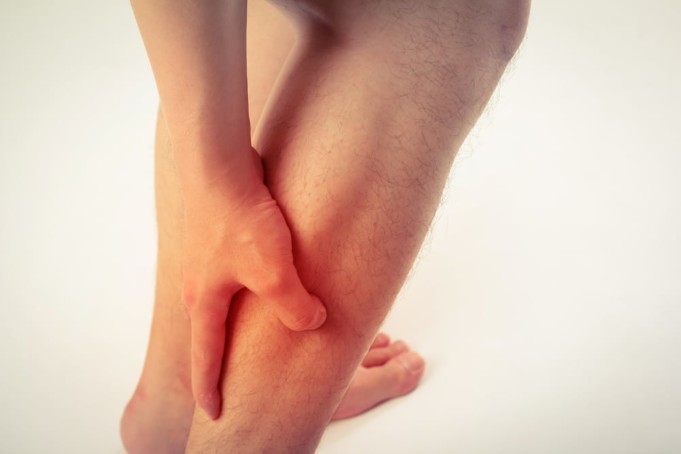Leg cramps are sudden involuntary contractions of the leg muscle. They are common problems that affect the calves, thigh, and feet muscles.
Leg cramps often occur while you are asleep or resting and can last for a few minutes before the pain dissipates. Sometimes they may leave tenderness in your muscle for about a day.
In some cases, the reason for leg cramps may not be found. However, some cases may be linked to an underlying condition, such as peripheral artery disease.
When experiencing leg cramps, simple stretches could help ease the pains and loosen the cramped muscle.
Causes
The causes of leg cramps may not necessarily be caused by an underlying condition. In most cases, our sleeping posture may trigger cramps, especially at night.
The common causes of leg cramps include;
- Shortening the calf muscle: By stretching out your feet, always your calf muscle is shortened. To stretch out or free up your calf muscle, you need to do squats.
- Tired muscles: When you stress your muscle for too long by exercising. This can cause cramps during or after exercise. Sometimes standing for an extended period during work hours may also cause your muscles to be tired.
- Muscle inactivity during the day: When you sit for a long time without engaging in any physical activity that will help to stretch your leg muscles, may increase your risk of leg cramps.
- Old age: Older people tends to suffer from leg cramps as a result of medications or medical conditions.
- Pregnancy: During pregnancy, women may experience leg cramps due to hormonal changes or increase in nutritional demands.
- Body posture or position: The way you sit or lay down in a certain position, can restrict blood flow to parts of your body such as your legs which may lead to leg cramps.
- A side effect of medication
The causes of leg cramps may also be traced to an underlying condition. Other causes of leg cramps include;
- Flatfeet
- Cirrhosis
- Gastric bypass surgery
- Type 2 diabetes
- Hypolalemia
- Diarrhea
- Hypothyroidism
- Alcohol abuse
- Muscle fatigue
- Motor neuron problems
- Sarcoidosis
- Peripheral artery disease
- Pregnancy (later stages)
- Oral birth control
- Vascular disease and venous insufficiency
- Use of some medications
Home Remedy
When you experience leg cramps, you can try these few steps to help ease or stop the cramps.
- Firstly, stop the activity you were doing.
- Stretch out your leg and massage the muscle gently.
- Hold your leg in the stretched position for a while till the cramps stops.
- You can heat to the tensed or tight muscle. You can use a heat pack if you have one.
Treatment
No special medication is recommended for cramps treatment. If the cramps is severe, and left your muscle with a tender feeling then you can get over-the-counter painkillers.
Prevention of Leg Cramps
Although preventing leg cramps for long may not be possible, but there are ways you could minimize the risks. Below are a few things you could do to help minimize your risk of leg cramps.
- Drink plenty water: Taking lots of fluids especially water during the day will help your muscles to function well.
- Engage in mild exercise: Engaging in mild exercise such as walking for a few minutes before bedtime can help to relax your muscles and prevent cramps at night.
- Wear more supportive shoes: Unsupportive shoes may strain your leg muscles and cause leg cramps. But putting on supportive shoes may reduce the risks of leg cramps.
Conclusion
It is normal to occasionally experience leg cramps at night. But when cramps become frequent and prolonged, then you should see a doctor.
Reference;
- Leg Cramps. NHS Inform
- What Causes Leg Cramps?. HealtLine
- Leg Cramps: Overview. Medical News Today
- Leg Cramps: Home Remedies. Medical News Today.












